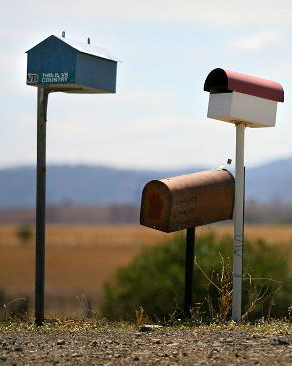Letters drag AusPost profits
 Australia Post says the letters arm of its business has lost nearly $200 million in six months.
Australia Post says the letters arm of its business has lost nearly $200 million in six months.
Legislation requires Australia Post to deliver letters to every Australian household five days a week, though those rules were suspended in some areas during the COVID-19 pandemic.
AusPost chief executive Paul Graham has told a Senate Estimates hearing that the rules under which Australia Post is required to operate should be reviewed.
“Our letters business is in an unstoppable decline as volumes continue to fall and costs increase,” he said.
“We have strategies in place and the determination to ensure that Australia Post is financially, socially and environmentally sustainable so we can continue making a positive contribution to the nation.
“But we will have to explore further changes to the way we operate to return the business to a stable financial footing.
“There are things we are regulated under that may need to be reviewed in light of changing customer habits we are seeing - the decline in mail, and the additional move to digital services, as opposed to coming into an Australia Post outlet.”
The postal service says that the average Australian household now receives just over one letter per week, and that number is expected to keep declining.
“Corporate mail” including bills and bank statements account for 98 per cent of letters.
Australia Post says it wants to focus on parcel delivery, which exploded during the COVID-19 pandemic and has seen strong revenue since then.
Communications Minister Michelle Rowland says that the challenges within the “cherished institution” need to be carefully considered.
“The Albanese government is committed to working with Australia Post to enable it to continue to provide the postal services that the Australian community needs both now and into the future,” she said.
“In relation to the delivery of letters, the government will work with Australia Post to examine options to improve productivity, while also ensuring Australia Post can meet the needs of the community in relation to the growing demand for parcels delivery.”








 Print
Print